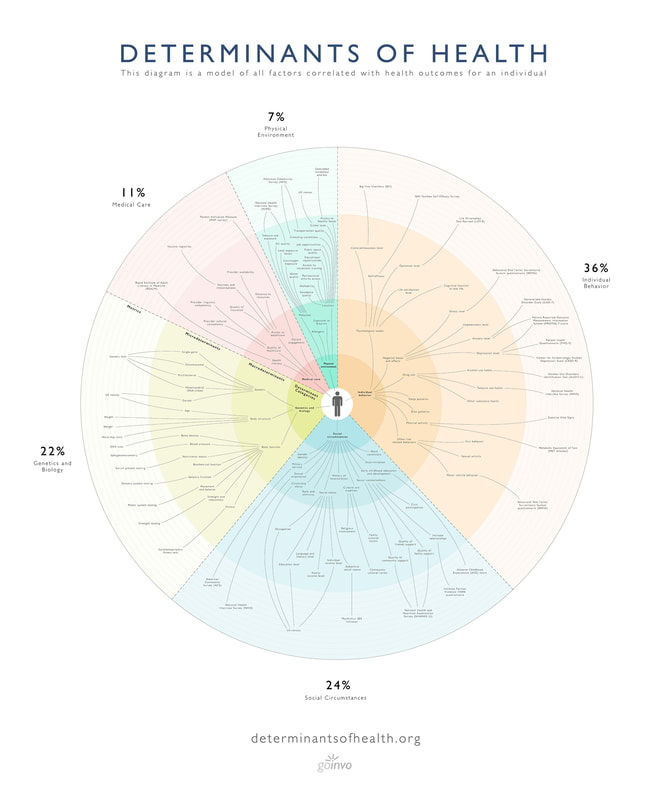|
Have you ever been encouraged to lose weight for x, y, or z ailments? So often weight loss is advised as the go-to solution because our culture holds the misconception that thinness=health. Everything from joint pain to depression and anxiety (which also occur in thin people) trigger the ‘weight management’ conversation. But Everyone Knows That Having a Higher Body Weight Is a Problem?Every health concern tends to elicit a prescription for weight loss, and yet there’s a lot about that correlation that needs a closer look. If you’ve ever experienced this perspective, let’s explore a healthier alternative. Here are 4 misconceptions that debunk the narrative that fat is bad and causes disease. You'll notice that we use terms like ‘higher body weight’, ‘people in larger bodies’, or ‘fat’ in our writing. We avoid the use of stigmatizing language (think ‘o’ words) that are associated with the BMI. 1. Having a Higher Body Weight Is A Disease Higher body weight is determined by the body mass index (BMI) scale which is widely used by medical professionals today, but has a troubling history and needs to be reconsidered as a measure of health. The Quetelet index, or BMI, was developed by a Belgian astronomer in the 1830s to see if the laws of probability applied to humans at the population level. It was never meant for clinical use but instead as a statistical exercise. The equation was created using strictly white, European bodies that don’t represent ethnic size and shape diversity. Neither does it factor in age, sex, body size, fat distribution, or behaviors and lifestyle. But because insurance companies profit off charging a premium for ‘overweight’ BMI, they push the narrative that larger bodies have a higher mortality risk. In reality, more representative data samples prove that higher body weights have a lower mortality risk than ‘normal’ and ‘underweight’ individuals. What’s more, in 1998, the National Institute of Health changed the threshold for what was considered a ‘normal’ BMI causing millions of Americans to become ‘overweight’ overnight without having gained a pound. This change was based on a report funded by pharmaceutical companies that make weight loss drugs. 2. Higher Body Weight Causes Disease Higher body weight often gets blamed for conditions like cardiovascular disease and type 2 diabetes which affect people of all sizes. In fact, thin people with cardiovascular disease and type 2 diabetes have less longevity than their higher body weight counterparts. What mostly determines the likelihood of someone having these conditions are genetics and repeated weight loss and regain (called weight cycling). Just a single round of weight cyclinig has the potential to damage blood vessels and increase the risk of cardiovascular disease (independent of body weight). Referring to diabetes, studies have shown that after 6-18 months any initial improvements attributed to weight loss deteriorate. Type 2 diabetes improvements can be pursued by changing nutrition and/or activity habits whether or not weight loss happens. |
AuthorThis blog is co-authored by Synergy's team of Registered Dietitian Nutritionists, Licensed Massage Therapists, and Diabetes Educators practicing in Bend, Oregon. As providers following Health at Every Size® (HAES) and Body Trust® philosophies, they strive to help EVERY BODY thrive. Categories |
|
Massage and Nutrition Therapies
M-F 9am-7pm Sat 10am-5pm |





 RSS Feed
RSS Feed